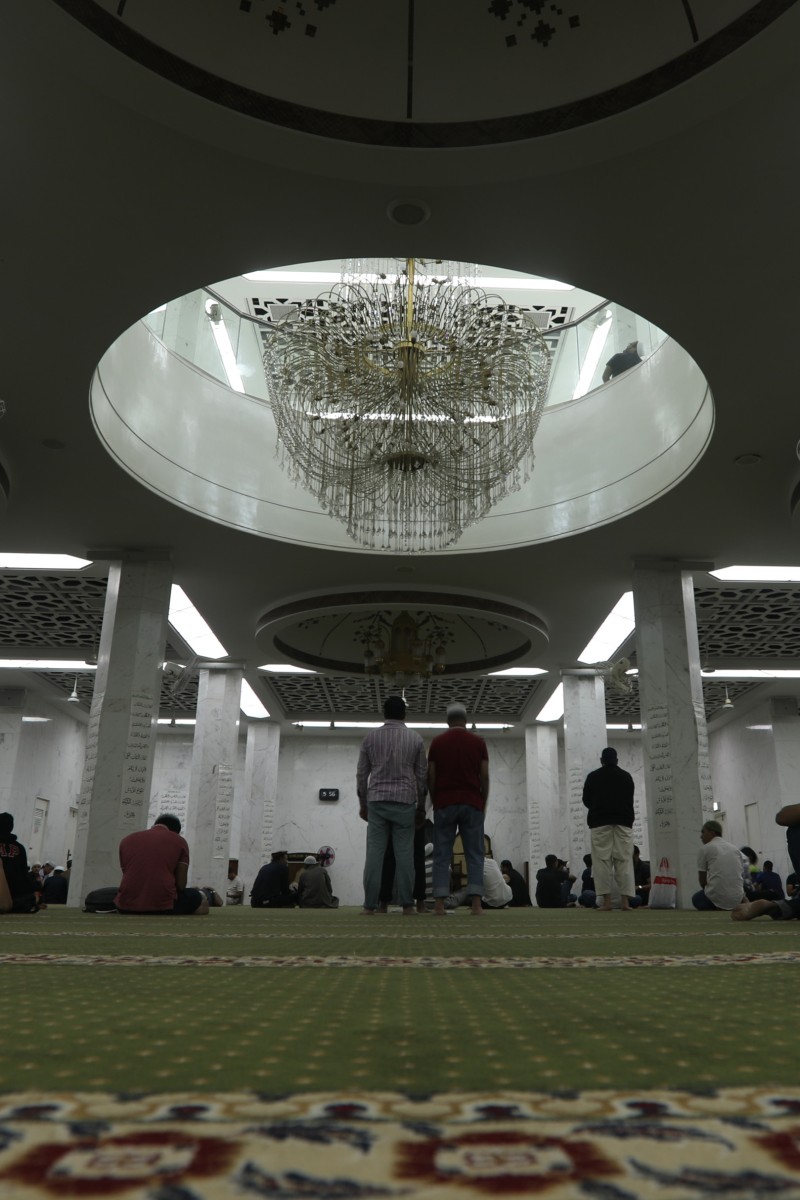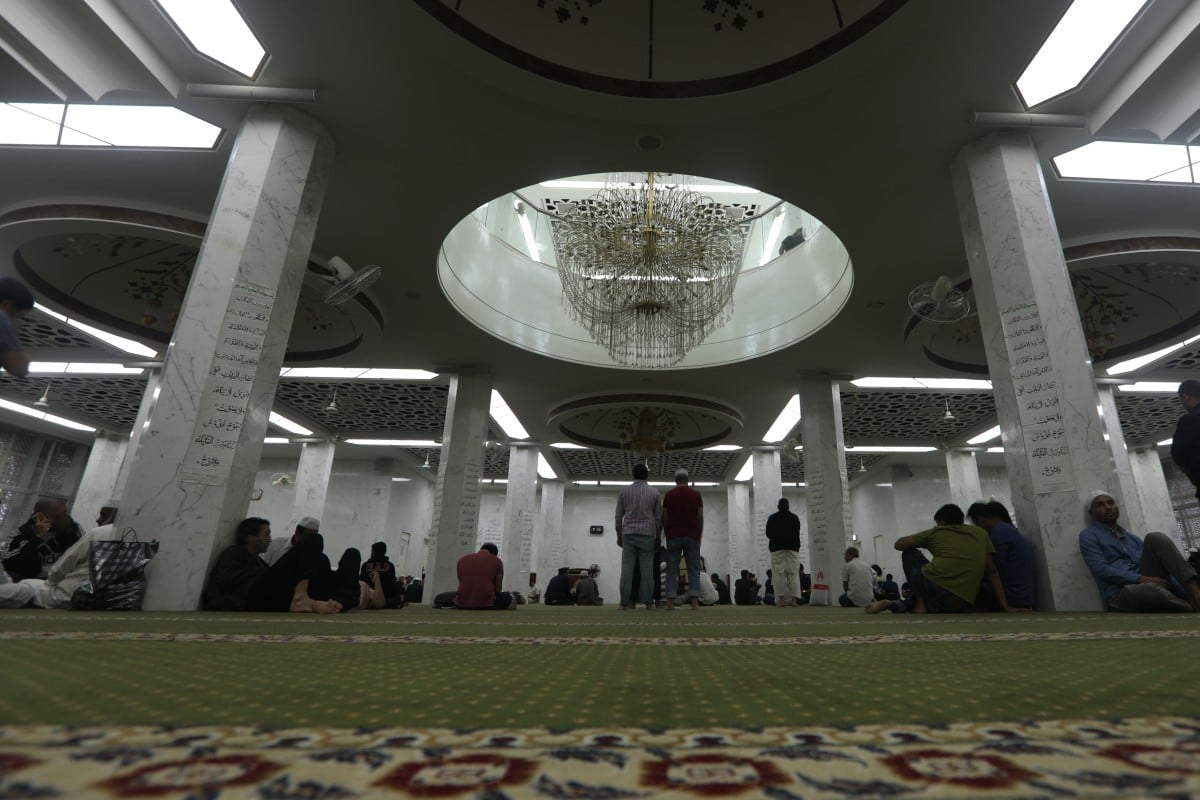
5-minute listening: What is Ramadan and how do Muslims spend the holy month?
- The Islamic festival is a period of fasting, worship, charity and spending time with loved ones
- Practise your English with our short listening exercises: play the audio linked below; answer the questions; and check the answers at the bottom of the page
 Muslims all around the world are observing the holy month of Ramadan. Photo: Xiaomei Chen
Muslims all around the world are observing the holy month of Ramadan. Photo: Xiaomei ChenQuestions
1. Why does Ramadan start on slightly different days in various places?
A. It depends on the weather.
B. It differs according to how people celebrate the event.
C. Religious leaders need to wait for the new crescent moon to appear.
D. all of the above
2. Which holiday is celebrated right after Ramadan?
A. Eid al-Fitr
B. Laylat al-Qadr
C. Awal Muharram
D. Eid al-Adha
3. When someone is “fasting”, they …
A. walk very quickly.
B. do not eat.
C. sleep throughout the day.
D. exercise very little.
4. When does Ramadan end in Hong Kong?
A. March 8
B. March 10
C. April 8
D. April 18
5. According to the podcast, what is one reason that Muslims observe Ramadan?
A. to celebrate an important historical event
B. to grow closer to God
C. to mark the changing seasons
D. to spend time with family
6. What is a suhoor?
A. It is a way of cooking a dish during Ramadan.
B. It is the name of a dish for Ramadan.
C. It is a meal Muslims eat before sunrise during Ramadan.
D. It is a meal Muslims eat after sunset during Ramadan.
7. What do Muslims typically avoid during fasting hours?
A. sweets and desserts
B. meat and dairy products
C. sour and spicy foods
D. all food and drink
8. According to the podcast, what happens if someone who is fasting falls sick during
Ramadan?
A. They must continue fasting.
B. They can break their fast and make it up later.
C. Their fast is automatically void.
D. They can get someone to fast on their behalf.
9. Which word can replace “refrain” in the podcast?
A. avoid
B. interrupt
C. decline
D. prevent
10. Based on your understanding of the podcast, what are Muslims encouraged to do
during Ramadan?
A. worship God
B. do charity and other good deeds
C. spend time with loved ones
D. all of the above
11. Complete the following summary using information from the podcast.
The way people observe Ramadan differs from city to city. In Egypt, beautiful (i) ____________ in all shapes and sizes decorate the streets. A person called a mesaharati walks through neighbourhoods before dawn, banging on (ii)____________ to wake people up for the suhoor meal. In Tangerang, a part of Indonesia, people go to the Cisadane River to wash their hair with a special shampoo made from (iii) ____________ . Streets in India are lined with (iv) ____________ selling snacks during Ramadan. In Hong Kong, several (v) ____________ offer free iftar meals for people to break their fasts during the holy month.
Answers
1. C
2. A
3. B
4. C
5. B
6. C
7. D
8. B
9. A
10. D
11. (i) lanterns; (ii) drums; (iii) rice straw; (iv) stalls; (v) mosques
Script
Adapted from Tribune News Agency
Voice 1: Many Muslims around the world are currently following a special practice of fasting from sunrise to sunset each day. They are observing Ramadan, a holy month in Islam.
Voice 2: Ramadan starts on slightly different days depending on where you are. This is because religious leaders in various cities look for the new crescent moon in the sky to signal the beginning of Ramadan. In Hong Kong, Ramadan started on the evening of March 10 and will continue until the evening of April 8. After Ramadan comes the Muslim holiday of Eid al-Fitr.
Voice 1: For Muslims, Ramadan is a time of worship, charity and good deeds. They believe fasting helps them be more aware of God and teaches them self-control. By going without food and drink, they can better appreciate what they have and feel empathy for those who are less fortunate.
Voice 2: Muslims eat a predawn meal, called suhoor in Arabic, to nurture their bodies before the daily fast. There are certain exemptions from fasting, such as for those who are unable to because of illness or travel, but they may need to make up for the missed days of fasting later.
Voice 1: The daily fast includes abstaining from all food and drink; not even a sip of water is allowed from dawn to sunset before breaking the fast in a meal known as iftar. Those fasting are also expected to refrain from evil deeds, such as gossiping, and instead, they should increase their good deeds. During Ramadan, people spend time with loved ones after the daily fast.
Voice 2: In Egypt, colourful lanterns in many shapes and sizes dangle from children’s hands and adorn homes or stores. Ramadan songs are played to welcome the month, and tents with food and entertainment cater to gatherings. There is also the predawn banging on drums by a mesaharati who roams neighbourhoods, calling out to wake the faithful for the suhoor meal.
Voice 1: In Indonesia, Ramadan rituals vary across regions, but in Tangerang, a city just outside the capital of Jakarta, hundreds of people flock to the Cisadane River to wash their hair with rice straw shampoo and welcome the fasting month with a symbolic spiritual cleansing.
Voice 2: In India, stalls line many streets selling dates, sweets and freshly cooked food. Some New Delhi neighbourhoods become lively at night as Muslims head to mosques to attend prayers. Some Muslims also visit holy shrines dedicated to Sufi saints, which are decorated with lights and colourful flowers.
Voice 1: During Ramadan, many mosques in Hong Kong offer free iftar meals so people can come together to break their fast. This includes the mosques in Tsim Sha Tsui and Wan Chai.